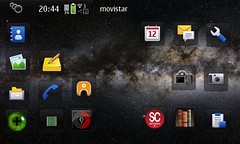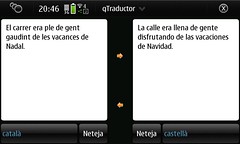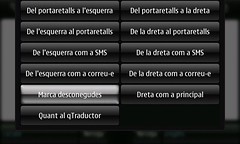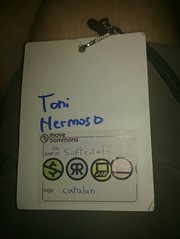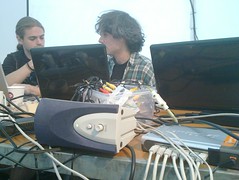El servei de traducció de Softcatalà, de fet basat en la tecnologia oberta de l'Apertium, és una de les pàgines més populars del lloc web de Softcatalà. De fa temps hi ha un creixent interès en anar portant tota aquesta funcionalitat a altres entorns, com poden ser les aplicacions mòbils i, per aquest motiu, s'ha creat fa uns pocs dies una llista de desenvolupament per a tal propòsit.
Centrant-me en el títol de l'apunt, de fa ja uns mesos faig servir com a dispositiu mòbil un Nokia N900. L'aparell té com a sistema operatiu Maemo, un entorn molt similar al Debian GNU/Linux, però dissenyat específicament per a dispositius mòbils.
En les darreres actualitzacions del sistema s'ha anat apostant progressivament per les biblioteques Qt —fet lògic considerant que Nokia va comprar Trolltech, l'empresa darrere de les Qt— i, per tant, cada vegada són més les aplicacions Qt que s'hi troben.
Precisament fa uns dies vaig descobrir el qTranslate, un client QT del Google Traductor. Vaig pensar que seria interessant poder tenir quelcom similar per al traductor de Softcatalà i, mans a la feina, en uns pocs dies ja tenim una primera versió. Respecte a l'aplicació pare, he afegit particularitats pròpies del servei, com ara marcar paraules desconegudes o controlar la correspondència entre parells de llengües disponibles (menys al servei de Softcatalà que al de Google).
Si voleu provar el qTranslate, podeu trobar-lo al Rebost de Softcatalà (que progressivament ara també anirà incorporant mòbil) o a diferents repositoris del Maemo. Si en teniu l'oportunitat, no dubteu a valorar l'aplicació i fer-ne comentaris.
Unes poques captures de l'aplicació a continuació:









